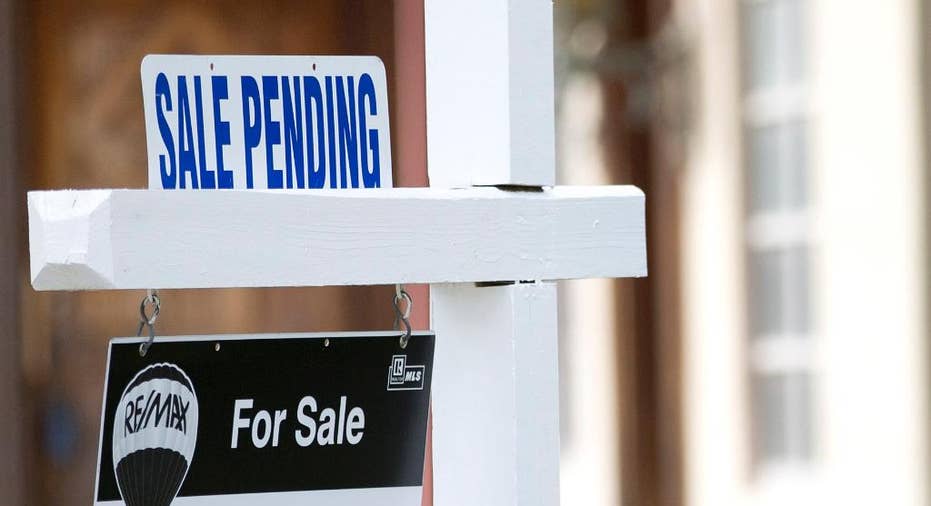Why your bank may not be giving you the best mortgage rate

Mortgage rates are near all-time lows, and it might be hard to imagine them going even lower. And yet, some loan experts say, many banks aren't giving borrowers the lowest rates they deserve.
It's a matter of how banks price mortgage loans: Loans must be attractive to potential investors who buy loans from the banks. Lenders of course want to make a profit. They also need to make sure they have enough staff to handle the demand for mortgages.
Most of these factors are out of your control — but there still are ways you can tilt the best-rate odds in your favor.
INVESTORS DRIVE PRICING
More than 90 percent of mortgages get sold after they close to investors such as Fannie Mae, Freddie Mac or the Federal Housing Administration. Lenders sell their loans to free up more capital to lend and remove the risk that borrowers may default, so they offer mortgages with rates and terms at which investors will buy them.
"Mortgage rates are not so much dictated by the banks as they are by the investors that purchase these loans," says Anthony Davenport, a former mortgage originator, now a credit management adviser and founder of Regal Financial in New York.
PRICING LOANS NOW FOR RISING RATES LATER
The mortgage industry has become so competitive that there's little room, or desire by lenders, to pad interest rates, says Eric Smith, another former mortgage originator and banking executive, now a financial literacy coach in Atlanta. The only exception, Smith says, might be for large mortgages that lenders often keep on their books.
Fannie and Freddie don't buy these so-called "jumbo loans," typically $417,000 or over in most areas of the country, so lenders usually hold onto them, as well as the relationship with the affluent clients who take them out.
For those loans, lenders might be "inflating that (mortgage) price a little bit to hedge against when short-term rates do start to come up," Smith says. That helps protect their profit margin on low-interest rate loans, Smith says.
Davenport adds that jumbo lenders "are in many cases borrowing money from places like the Federal Reserve at 0.25-0.50 percent and not passing along the savings to customers."
Shmuel Shayowitz, president of Approved Funding in River Edge, New Jersey says there are two other instances when banks may hedge rates a bit. Sometimes lenders are waiting to be sure that a lower rate will stick and not rebound immediately, he says. That would leave the bank with a rate locked for a customer that's lower than a now-prevailing rate.
Other times it may be an effort to manage mortgage demand in order to clear a backlog of loans without adding manpower to handle additional volume, Shayowitz adds.
TWO WAYS TO GET A RATE BREAK
While there is little — make that nothing — you can do about bank profit margins or how Fannie and Freddie shape lender pricing, Davenport says borrowers can make a tactical move or two to ensure they're doing all they can to get the best rate.
First, mortgage rates vary according to a borrower's FICO score . "Someone who has a 740 score isn't really likely to default any more than someone who has a 760 score, but they're going to pay a higher interest rate," Davenport says.
Knowing where price breaks fall on the FICO score scale can help a borrower earn a significant discount. For example, if a lender's discount kicks in at a 700 credit score and yours is 680, you might decide to reduce a credit card balance or two enough to bump your score up to the next level.
Secondly, shop around, Smith says. Make sure to ask for a rate based on zero discount points so you can compare pricing properly.
____________
This article was provided to The Associated Press by the personal finance website NerdWallet.com. Email staff writer Hal Bundrick: hal@nerdwallet.com. Twitter: @halmbundrick.
RELATED LINKS:
NerdWallet: What are discount points? https://nerd.me/5-nerdwallet-mortgages
MyFICO.com: Get the score lenders use to evaluate your home mortgage loan
http://www.myfico.com/loancenter/mortgage/step1/getthescores.aspx
Federal Reserve Bank of St. Louis: 10-year Treasury yields
https://fred.stlouisfed.org/graph/fredgraph.png?g=7qUd



















